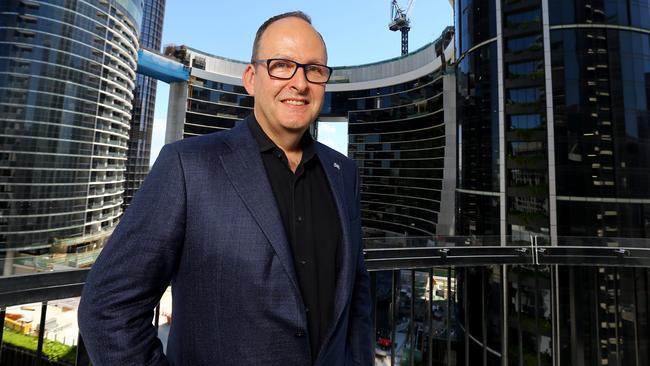Star inquiry: Bell’s sound and fury all over an office spat
In many ways Star was a casino in the early stages of being reformed before the Bell inquiry set its case back a year.

Business
Don't miss out on the headlines from Business. Followed categories will be added to My News.
After more than two months, a full inquiry and witnesses called and recalled, millions of taxpayer dollars spent and reputations shredded, the best the rebooted Bell review into Star could uncover was a fiery office spat.
That’s the key conclusion from the confidential closing submission seen by The Australian by the Bell inquiry’s very own lead counsel, Casper Conde.
The 100-page submission is long on criticism about Star’s former chief executive Robbie Cooke and former chairman David Foster, but little on real substance.
Much of the claims would quickly crumble if tested inside a real courtroom.
Conde’s submission says after one year of reform efforts, Star is not ready to be suitable to hold a licence nor had the culture been changed. This would be a three to five-year journey, Conde says.
This is significant, that’s the exact timeline Cooke had said was needed from the outset, where the state’s casino commissioner was pushing for immediate results and blew up the reform effort and financial rebuild in the process.
To be clear, these are not the final recommendations of Adam Bell himself, which were handed to the regulator on Wednesday. However, Conde’s confidential submission forms the main arguments of the counsel, who in an inquiry plays the role similar to a prosecutor.
There are no accusations of law-breaking against Cooke, Foster or the board. Nor are there any major lapses or flouting rules by the casino.

Indeed, Conde says it was a line ball call that it may have broken NSW casino laws in failing to notify the regulator after several executives resigned. However, he concedes in the submission it is still not clear when the resignations took effect.
We do get a robust insight into a private text exchange between Cooke and Foster over who booked a meeting room inside Star’s HQ. It’s good for headlines, but hardly the foundation for a state-backed investigation.
Conde’s submission points to just four cases over the past year, where there was a breach of the casino’s own internal controls. This was from staff or because of a software malfunction on a machine. In each case, the breach was picked up by the casino’s own investigation team, albeit one was slower than it should have been, which led to more than $3m in payouts. More than 40 lucky punters found out about the lurk, 16 of these were “persons of interest” although we have no details about what sort of interest.
Significantly, Conde’s submission uncovers none of the behaviour that was found in the first Bell inquiry, which pointed out the years of money laundering, under-investment in risk systems, organised crime links and a culture of a casino that looked the other way. (All this wheeling and dealing over the past decade happened under the nose of the NSW regulator.)
What does it mean for Star? The casino has been chastened and humiliated and now there are many players circling, eyeing the spoils of a carve-up. The NSW regulator took the nuclear option of launching an inquiry that uncovered a company whose staff and executives were operating under extreme regulatory and financial shock. Reputations have been trashed, and other careers cut short over a fishing exercise.
Fundamentally, Star’s chances of reform have been bumped right back to the beginning again. There are no winners in this game.
More Coverage
Originally published as Star inquiry: Bell’s sound and fury all over an office spat





